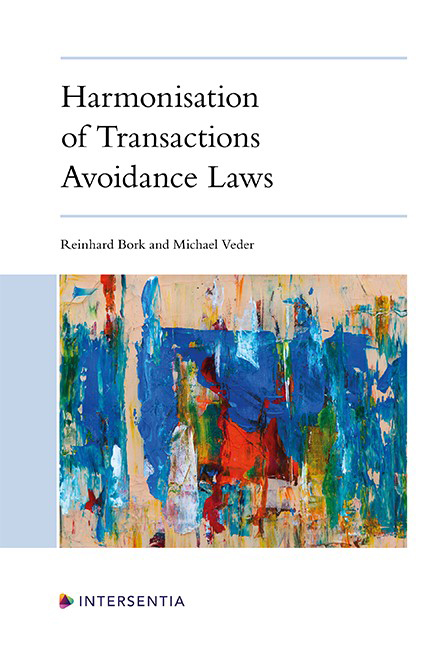Greece
Published online by Cambridge University Press: 26 May 2022
Summary
PART 1. DETAILS OF YOUR NATIONAL TRANSACTIONS AVOIDANCE LAW
I. SYSTEM
Question 1. Is your transactions avoidance law (for terminology cf. Introduction at C.) part of insolvency law or is it in parts or as a whole incorporated in other fields of law (e.g. general civil law, commercial law, company law)?
The national transactions avoidance law is mainly part of the Greek insolvency framework as set out in the recently enacted Law for the Settlement of Debts and Second Chance (Law No. 4738/2020, as currently in force, the “Insolvency Law”).
Nevertheless, Art. 939 et seq. of the Greek Civil Code (“CC”) contains a provision for the defrauding of creditors that applies to all entities (either individuals or legal entities), including consumers. More precisely, creditors are entitled to request the annulment of any act made by the debtor to their detriment, in so far as the remainder of the debtor’s estate does not suffice to satisfy the creditors. Therefore, the CC provides that the transfer may be revoked if the transferee did not act in good faith, that is, it knew that the debtor has proceeded in this action with the intention of harming its creditors. A rebuttable presumption has been established in relation to the third party’s knowledge, where the third party is the spouse of the debtor or a relative by direct lineal relationship or a relative by blood up to the third degree or a relative by marriage up to the second degree (941 CC). Moreover, if the transfer is gratuitous (such as a gift), proof of the transferee’s knowledge is not required for the avoidance of the transfer (942 CC).
Question 2. Are the rules on transactions avoidance law in your jurisdiction the same for entrepreneurs/legal entities and consumers/natural persons? If not, please explain the differences and take it into account when completing this questionnaire.
Rules of avoidance under the Insolvency Law apply to both natural persons and legal entities pursuing an economic purpose, while the provisions of the CC apply to all persons (i.e. also to legal entities that do not pursue an economic purpose).
- Type
- Chapter
- Information
- Harmonisation of Transactions Avoidance Laws , pp. 861 - 888Publisher: IntersentiaPrint publication year: 2022

